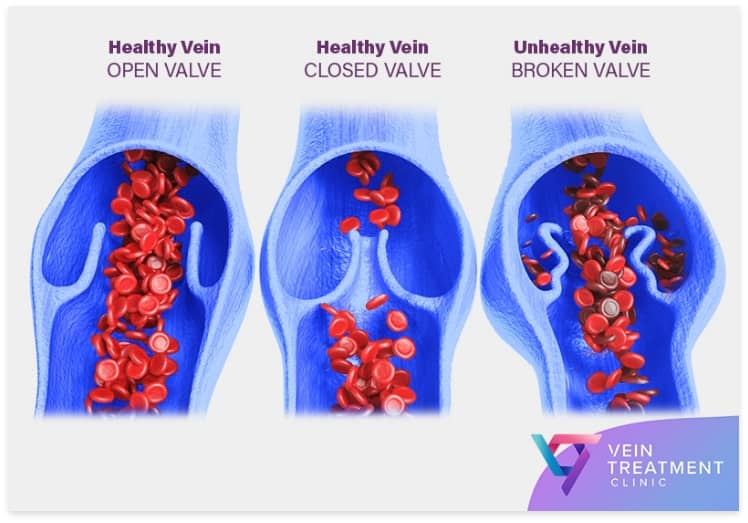A healthy lifestyle involves eating nutritious food, exercising regularly, and putting your mental health first.
You can tell when you are not feeling your best. You might feel “off” and notice that your digestion isn’t working as well as usual, or you catch colds more often. You may feel anxious, depressed, or unable to concentrate.
A healthy lifestyle will make you feel better. You don’t need to change your life all at once. You can make small changes to improve your well-being. Once you’ve made one positive change, you can be motivated to continue making more.
What does “healthy living” mean?
You’ll probably get 50 different definitions if you ask 50 people what they think a “healthy lifestyle” is. This is because there’s not one single way to be healthy. Healthy living is about doing what makes you feel happy.
A healthy lifestyle may include training and running two marathons a year, following a keto diet, or spending time in person with family every other day. A healthy lifestyle could include running two marathons per year or following a keto diet.
Both are perfect for that person. Both are ideal for the person. Decide what healthy living looks like to you.
What is its benefit?
Changing your lifestyle to improve your health has benefits for the body, mind, wallet, and even the environment.
1. Preventing disease
Health habits can help reduce your risk of developing various diseases, including those that run in the family. In recent research, for example, adults who followed an American standard diet (rich in fruit and vegetables) over a period of 8 weeks were at a lower risk of heart disease.
Researchers found in another 2020 study (TrustedSource) that every 66-gramme increase in daily fruit and vegetable consumption was associated with 25 percent less risk of type 2 diabetes.
The risk of developing disease is also reduced by substituting whole grains for refined grains. In an observational study of nearly 200,000 adults, those who consumed the most whole grain had a lower rate of diabetes type 2 than those who did not.
A review of 45 studies found that eating 90 grams of whole grains (or three 30 gram servings of grain) daily reduces the risk of heart disease, cancer, and coronary heart disease by as much as 22 percent.
Exercise can add years to our lives. Even 11 minutes of exercise a day could be enough. Researchers tracked over 44,000 adults in a study. Researchers found that those who exercised for 11 minutes at a moderate to vigorous intensity each day were less likely to die than those who only did so for 2 minutes. The comparison was the same even if you sat down for 8.5 hours a day.
2. Savings on your money
You should always visit your primary physician annually for a physical examination. It’s especially important because some conditions, like high blood pressure, can be “silent.” They don’t show any symptoms, so you may not even know that you have it until you’re checked.
The healthier you are, the less likely it is that you will need to visit a doctor. It could help you save money on co-pays and prescriptions.
3. Lengthens lifespan
Living a long life is linked to healthy habits. You could live 14 years longer if you never smoked at 50, maintained a healthy body weight, exercised regularly, ate a balanced diet, and drank alcohol in moderation. Even a few changes can increase your life expectancy.
4. The environment can benefit from the use of recycled materials.
Ultra Processed foods contain refined grains and additives that change the texture, flavor, or olor. These foods include cheese puffs and packaged dessert cakes, as well as chicken nuggets and sweetened cereals. In U.S. grocery stores, more than 70% are ultra-processed.
Making ultra-processed food can contribute to greenhouse gas emissions. There are also animal products. According to a study from 2013 by the Food and Agriculture Organisation of the United Nations, raising livestock for meat and milk accounts for 14.5 percent of the greenhouse gasses created by humans.
There are simple fixes to this problem. According to the National Resources Defence Council, if all Americans reduced their weekly beef consumption to 1/4 pound, the reduction in global warming emissions would be equivalent to taking 4 to 6 million cars off the road.
It’s not just about what you eat. Cycling instead of short car trips can reduce the amount of carbon dioxide released into the atmosphere.
Researchers estimated that 20 percent of Madison, Wisconsin, residents who biked less than five miles per trip would reduce carbon dioxide by over 57,000 tonnes every year.
A study from 2017 in Stockholm showed that if drivers commuted to work and home by bicycle instead of car, they could save up to 449 life years per year in the country due to lower vehicle emissions. These are not just dreams. Barcelona’s bike share programme reduces carbon dioxide emissions by approximately 10,000 metric tonnes each year.
What is the simplest way to begin a business?
You can start your journey to a healthier life by making small changes you are confident in. Make “SMART” objectives. SMART stands:
- Specific Terms
- Measurement
- attainable
- You can find out more about this by clicking here.
- Time-bound (meet a deadline and complete the task within a set amount of time).
You could achieve more success if you set SMART goals. One initial “win’ will motivate you to set bigger goals. Take a look at the tips below to start improving your health.
1. Vegetables are good for you.
According to a 2010 analysis of prospective studies conducted by Trusted Source, eating more fruits and vegetables is associated with a lower risk of heart disease and stroke.
You don’t need to eat nine servings of vegetables a day to be healthier. Maybe your goal is to eat one serving of vegetables for dinner. Consider eating one fruit or vegetable at each meal if you do this already.
Remember that less processed vegetables are healthier. Try roasted potatoes with herbs instead of fries or a stir-fry with colorful vegetables drizzled with vinaigrette.
2. Switch to whole grains.
You will be healthier if you replace refined grains with whole grains. In a small study that was conducted in 2017 (trusted source), 81 men and women who were postmenopausal were divided into two groups. The half that consumed whole grains and the other that consumed refined grains followed two different diets. After six weeks, the group that consumed whole grains increased their resting metabolism rate (RMR). RMR is the number of calories that your body burns when you are at rest.
Researchers from 2016 TrustedSource and 2020 TrustedSource have linked a higher intake of whole grains to a lower risk of diabetes and cardiovascular diseases.
Start by substituting one refined grain per day with whole grains. This could be your toast for breakfast or the pilaf that you serve with dinner. Try different grains and flavors to find the ones that you like best.
Whole grains include
- Plain oats
- Whole-grain pasta and bread
- Brown and wild rice
- Buckwheat
- Bulgur wheat
- millet
- Barley
- spelt
- Quinoa
- Farro
Refined grains include
- White bread and pasta
- white rice
- most breakfast cereals
- pretzel
- Crackers
3. Be more active.
Consider this exercise as a form of physical activity, or just moving your body. It’s not necessary to run a full marathon or even run at all to stay healthy.
You can walk, ride a bicycle, learn salsa dancing, do martial arts, or take an online workout class. It’s important to pick an activity that you enjoy. If you choose an activity that interests you, you are more likely to stick with it.
Second, you don’t need to begin with a lengthy workout. Ten minutes per day, five days a week, is a good goal. Add another 5 to 10 minutes when you are ready. Continue doing this until at least 30 minutes are spent on most days of the week.
4. Keep friendships
Mental health can be improved by maintaining strong relationships with loved ones and friends. People with poor relationships are more likely to suffer from depression. People with low-quality social connections have a greater risk of depression than those with high-quality connections.
Research from a trusted source also suggests that feeling isolated may be associated with depression and a poorer self-rated state of health. It can also lead to various health issues, such as headaches, palpitations, and pain in the lower back, neck, or shoulders.
If you can’t meet up with family or friends in person, plan a weekly phone call or video chat to catch up. You can also start a conversation with your neighbor whenever you pass them.
5. Control stress.
Chronic stress causes your body to be in a constant state of fight or flight. This can damage your immune system, making you more vulnerable to many health issues.
- Heart disease
- Diabetes
- digestive problems
- You can also check out our other blog posts.
- High blood pressure
- You can also find out more about
- Sleeping Problems
Exercise helps reduce stress through the release of pent-up energy. Exercise can boost the mood-lifting hormone endorphins. Others find that mindfulness practices, such as meditation or deep breathing, journaling, or spending more time in nature, can reduce stress. Speaking to friends is also helpful.
Consider therapy if you need more help relieving stress. Working with a psychologist, psychiatrist, or therapist who is trained can help you overcome challenges and learn new ways to manage stress.
What are the disadvantages?
A healthy lifestyle has no downsides since everyone gets to decide what it means to them. You don’t need to do anything you’re not happy about. Unhappiness, as we’ve already discussed, can have a negative impact on your health.
If you dislike conventional exercise, you can find other ways to move your body. You don’t need to eat kale if it makes you sick.
Do I have to stop my “bad habit” now?
You don’t have to stop doing things you consider “bad habits” to live a healthy life. It is possible to maintain a healthy lifestyle while eating cookies, taking the day off of your workout, or drinking wine at dinner.
Enjoying a treat every now and then can actually help you stick to healthy eating practices. A mindset that says you must only eat good foods and avoid bad ones can backfire. Healthy eating includes the ability to enjoy your mom’s extra-cheesy lasagne and relish every bite.
Rest days are important for both physical and mental well-being. Exercise too much, and you can get injured or burn out.
Various health benefits are linked to moderate drinking. The standard drink is:
- Beer: 12 fluid ounces
- 5 fl. oz. of wine
- Malt liquor, 8–9 fl. oz.
- Spirit, 1.5 fl. oz.
Talk to your doctor if, on the other hand, you feel that you cannot control a habit that could have negative effects on your health (such as excessive alcohol consumption, recreational drug use, or smoking). You can get support from them.
The Bottom Line HTML
Healthy lifestyles can help you not only feel better but also extend your life, reduce the risk of certain diseases, save money, and be good for the environment.
You can define what a healthy life is for you. You don’t have to do anything in particular to be healthy. What makes you happy and satisfied? Start small with your changes. This will increase your chances of success, and the small wins will snowball into bigger gains.
Speak to your doctor if you need help making lifestyle changes. They may refer you to other professionals, like dietitians and therapists, if they are unable to help directly.
Credit: The Web Health & Drugs Discussion




